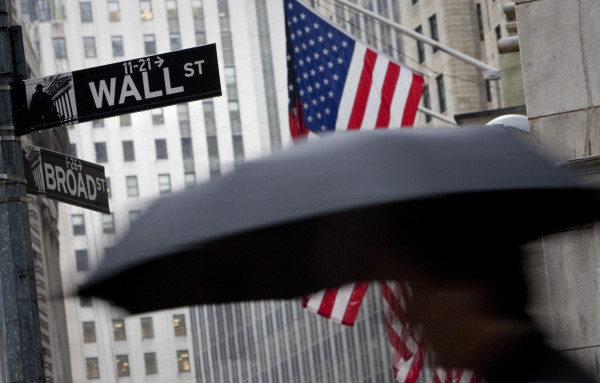

The latest economic data to emerge from the US indicates a rapid contraction in economic activity and a looming recession, according to the chief US economist at TS Lombard.
Steven Blitz said a recent survey conducted by the US Federal Reserve of companies in the real economy found a bulk of respondents saying they expected little or no growth in their order books, and that they are already seeing the pace of price increases in the real economy slow.
Blitz said: "The economy is decelerating at a more rapid pace and inflation is softening (always lagging growth by about a year). The 12-month percent change in the PPI final demand services ex transportation & warehousing was 2.5 per cent compared to 4.8 per cent when the year began. I am not quite ready to say recession has arrived, but it is close by. I need to see confirming data on labour demand. Keep in mind that once the US economy’s momentum starts to slip in earnest, it typically slides into recession a lot faster than anticipated."
He said economic activity was moving back towards normal levels, having previously been boosted by stimulus during the pandemic. His view was that at the same time that the impact of the stimulus is wearing off, the central bank has lifted interest rates, which would be expected to reduce the level of aggregate demand in the economy.
Blitz added: "Looking at real growth in retail spending on discretionary items, December was the second consecutive month-on-month decline. This slippage dovetails with weakening growth in the index of aggregate weekly payrolls (product of wages, employment, and hours worked). It is true that weather and questionable seasonal adjustments played a role in the retail sales data. But, when considering the confirming trends not impacted by weather, weather’s role was a cameo. As for seasonals, the downturn in real spending is in evidence looking at Q4 versus Q3, so it is not just a story about holiday spending pulled forward into October.”
Chris Beauchamp, market strategist at IG group said that while inflation has started to fall, this has come in conjunction with a decline in retail sales, with the latter boding ill for the economic outlook.
Chinese dance
Geir Lode, head of global equities at Federated Hermes, said another consideration for investors was that the re-opening of the Chinese economy may boost global economic growth and inflation, something which could lead to US interest rates rising at a faster pace than is currently expected.
But that is not an outcome expected by Richard Saldanha, who runs the global equity income fund at Aviva Investors.
He said: “We expect the re-opening in China to be quite similar to how we all experienced it here. With it happening in multiple stages and in stop start fashion, for that reason we don’t expect it to have a big immediate impact.”
Specifically, Saldanha doesn’t expect the trajectory of US economic growth to be changed by the re-opening of China, and, in his view, that means inflation will continue to fall and economic growth will be mediocre.
In terms of what that means for equities, he said: “While the start of 2023 has seen markets reward the companies that are heavy uses of energy as they now expect energy prices to be lower, it is about rewarding the companies that benefit from lower inflation.
"But many of those companies are also those that are exposed to consumer spending and the wider economy, which is what I think investors will be worried about later this year. And in that climate, we are focused on the profitable technology companies out there, such as Microsoft. Those shares sold off last year not because of any fundamental change in the performance of the company, but because interest rates were rising. But in a world where rates and inflation are close to their peak, that goes away and the focus returns to the fundamentals of how those companies are performing."
He said that while many large technology companies, including Microsoft, have announced job cuts in recent weeks, this is partly a function of some firms over hiring during the pandemic, and didn't change the long-term growth trajectory in areas such as cloud computing.
Alex Funk, who runs the model portfolio service at Schroders Personal Wealth said his firm continued to expect the US to enter recession in the second half of this year.
His view is that the re-opening of the Chinese economy may benefit tourism sectors in countries close to China, rather than help the US economy.
With that in mind, he is relatively cautious on the outlook for US equities, as he believes they remain “expensive” and that US equities continue to price in a much more moderate economic outcome than do UK and European equities.
david.thorpe@ft.com



